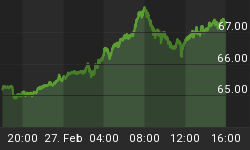Giant Visa and Mastercard have now followed PayPal in exiting Russia, the Russian ruble hitting a new low, bondholders uncertain about how to pay foreign creditors, and some analysts saying the economy could now shrink by as much as 7%, Putin’s invasion of Ukraine is coming at an exorbitant price, which he is still willing to pay.
Now, following a decree just signed by Putin, bondholders can repay debt to foreign creditors–but in rubles. The ruble is crashing and it’s unclear if bondholders could even accept such a payment in this atmosphere of sanctions.
That, in turn, has analysts concerned about default on $33 billion in dollar bonds held in Russia.
One barometer of the fear comes from the insurance on credit-default swaps (CDS). Last week, according to Bloomberg, upfront costs for insurance was at $4 million. By Monday, it had risen to $5.8 million, which equates to an 80% chance of default.
As for the ruble, it hit a record low on Monday, falling to 137 to the dollar, or 10% lower than Friday, as offshore markets saw fewer banks willing to participate in trading transactions with the currency, the Wall Street Journal reported.
Fears are now high that a Russian default could lead to a situation similar to or worse than the financial crisis of 1998, which had a global impact. Over the weekend, JPMorgan said it expected Russia’s economy to shrink by 35% in Q2, and by 7% overall in 2022.
And credit ratings companies are handing out downgrades of Russian sovereign and corporate debt issuers at record speed.
Early last week, with long lines of panicked Russians trying to get their hands on foreign currency as the ruble continued its plunge, the Russian Central Bank announced that its key interest rate would double to 20% to curb out-of-control inflation.
In the meantime, more than 30 large international companies have already withdrawn from Russia.
Visa and Mastercard announced on Saturday they would suspend operations in Russia in a process that will take some days to realize with all clients and partners in the country. What it means is that no transactions will be possible with Visa cards issued in Russia, while any Visa cards issued outside of Russia will not be able to make transactions in Russia, Reuters reports.
The same is true for Mastercard and American Express.
While this will be one of the hardest hits of all of the divestments, others are lining up every day.
Earlier on Monday, two of the Big Four accounting firms, PwC and KPMG, announced their exits, and retailers are jumping on board, with H&M Group, Inditex (Zara’s parent company), IKEA, Nike, Adidas and Puma being the biggest names to close shop. The supergiant oil and gas companies, such as BP, Shell and Exxon have also pulled stakes on some big deals.
Apple has stopped selling its products in Russia, and social media giants have implemented various bans, while auto giants have largely suspended operations and exports, while large shipping companies have halted cargo loadings in the country.
















